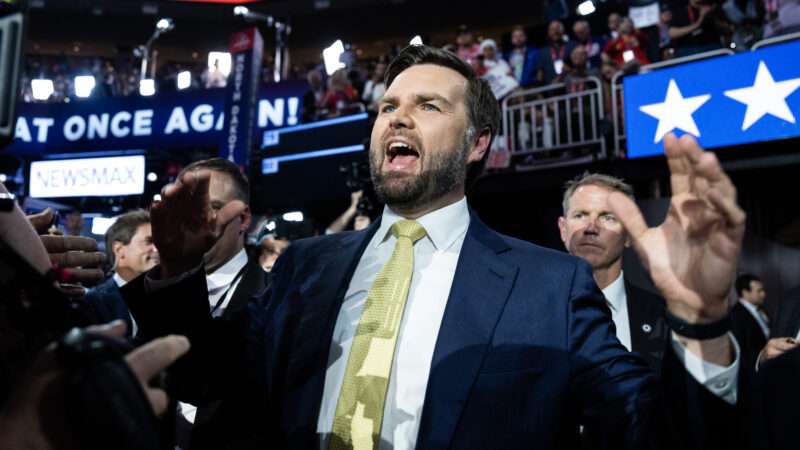Members of the new right wing of the Republican Party have proclaimed themselves the champions of the working class. I am sure they mean it, despite many of them being among the elite of the elite. And because so many are lawyers—including those like vice presidential nominee J.D. Vance who come from an elite Ivy League school—we can forgive them for failing to understand that their economic policies would hurt, not help, the working class.
Part of the shift is because Republicans don’t believe they should continue as the so-called party of big business. They are correct. It’s a sad fact that traditional Republican politicians have often confused being for free markets with propping up and protecting big banks and other companies with subsidies and other handouts. The fact that Democrats do the same doesn’t excuse Republicans’ behavior.
A first essential step to earning the moniker of the party of the people is ending all subsidies, bailouts, tax breaks, and other government-granted privileges to big corporations. That will undo much of the bias toward businesses while allowing markets to do their jobs and raise all economic boats.
I doubt the new populists will do it. Instead, expect more counterproductive “pro-worker” policies like raising the corporate income tax. Taxes are paid only by flesh-and-blood people, and corporations, well, are not people.
In other words, corporations don’t really pay taxes. For instance, they pass the corporate income tax on to workers in the form of lower wages, to consumers in the form of higher prices, and to shareholders in the form of lower dividends and share valuations (which can mean reduced values of workers’ pensions). It’s like a game of hot potato, except the potato is on fire and always lands in the laps of those at the end of the line—the very people faux populists claim to be helping.
Imagine workers’ surprise when they find wages stagnating faster than a politician’s principles during election season. “At least we stuck it to the corporations!” the politicians will say as workers tighten their belts another notch.
Calls for industrial policy suffer from the same flaws. On the right, these arguments are usually about propping up industries said to be crucial for national security and a desire to bring manufacturing jobs back to the U.S., particularly regions hit hard by deindustrialization.
Even ignoring the fact that America’s industrial base is doing well—capacity is at an all-time high—industrial policy inevitably involves the government providing subsidies, tax credits, tariffs, and other special privileges to a few large, well-connected corporations. This cronyism is of no benefit to most ordinary workers; it’s a boondoggle for the politically powerful. It will hurt working class taxpayers.
Just look at President Joe Biden’s industrial policy. It was meant to ensure U.S. self-sufficiency in critical sectors like semiconductors, pharmaceuticals, and advanced technologies. The cost has been between $1.2 and $2.1 trillion in domestic subsidies for preferred manufacturers. While the administration likes to claim the subsidies will ultimately benefit workers, companies, often big and rich ones, are reaping taxpayer dollars for projects they would have likely undertaken anyway. For instance, about half of all Inflation Reduction Act (IRA) projects were announced before the IRA was passed, and the private green market was booming even before the subsidies.
In Washington, D.C., apparently, nothing says “power to the people” quite like funneling taxpayer money to large corporations. But let’s not forget the piece de resistance: tariffs. How better to help ordinary Americans than by raising their cost of living?
Watch as prices rise further on goods and services affected by tariffs. Reduced competition in the marketplace leads to a world where workers pay more for less. Unfortunately, these price hikes will hit lower-income families hardest. It’s like a regressive tax but with a populist bow on top. Then, as other countries retaliate with their own tariffs on American products, we get to play everyone’s favorite game of trade war. American exporters will struggle, and productivity and economic growth will slow.
By all means, make America great again—but what does that have to do with making everything more expensive for American producers, workers, and consumers alike? The New Right talks a good game about being the new workers’ party, but its marquee policies would bring higher prices and cronyism under a misleading banner of populism.
COPYRIGHT 2024 CREATORS.COM
The post The 'Pro-Worker' GOP Is Anti-Worker appeared first on Reason.com.



